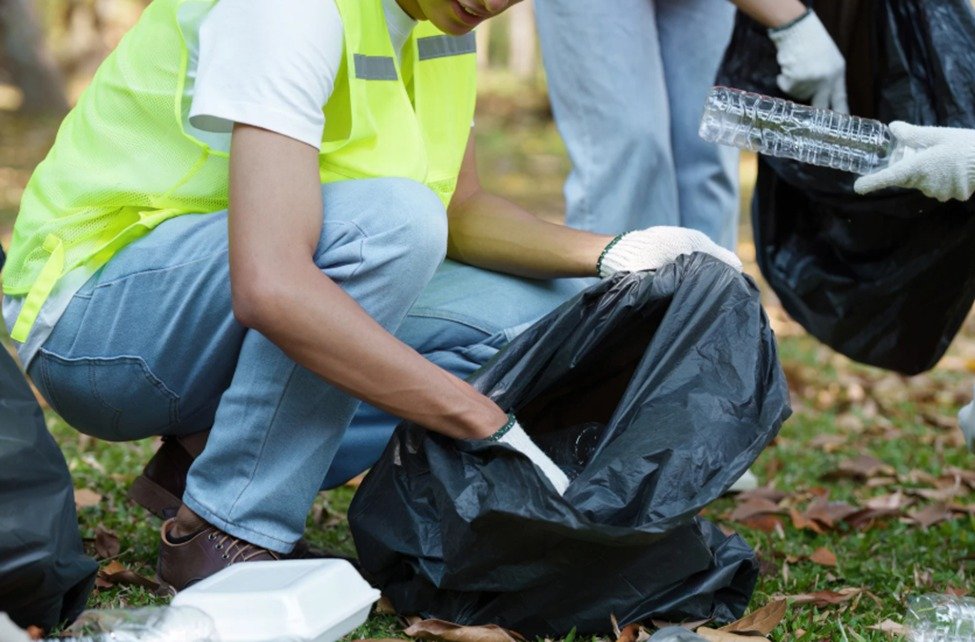
Introduction – The Seasonal Challenge of Managing Garden Waste Responsibly
Every season brings its own rhythm to garden care. Spring and summer invite lush growth, while autumn turns yards into a sea of fallen leaves. With this beauty comes a recurring problem,what to do with the heaps of organic waste that accumulate. Managing garden waste responsibly is about more than tidiness; it’s an environmental responsibility that affects soil health, local ecosystems, and community cleanliness.
Garden waste, if neglected, can quickly become a nuisance. Piled leaves may block drains, decaying grass can attract pests, and damp organic matter releases methane when improperly disposed of. While many households try home composting, not all have the time, tools, or space to manage large amounts of green waste effectively. That’s where professional garden waste collection services come in, offering structured and sustainable ways to deal with seasonal clean-ups.
Services like those featured on Rubbish.com connect homeowners, gardeners, and property managers with licensed waste carriers who collect, recycle, and dispose of garden refuse responsibly. The company provides transparent, eco-conscious waste solutions designed to reduce landfill reliance and support local recycling efforts.
What Qualifies as Garden Waste
Not all garden debris is the same, and understanding what qualifies as green waste helps in separating it correctly. Typical items include grass cuttings, hedge trimmings, branches, twigs, soil, and leaves. Seasonal materials like fallen fruit, cut flowers, and plant clippings also fall into this category. However, contaminated or non-organic items,such as plastic plant pots, treated wood, and artificial turf,should be excluded, as they interfere with recycling and composting processes.
Many councils offer curbside garden waste bins, but these services often have limitations in frequency and volume. Private waste collection companies, on the other hand, can handle larger quantities and a broader range of materials. They ensure that organic waste is processed through proper composting channels or converted into renewable energy sources through biomass recycling. Understanding these distinctions helps homeowners make informed decisions about what to include in their green waste bags.
Why Proper Collection Matters
Improper disposal of garden waste can have significant environmental repercussions. When organic material is dumped in landfills, it decomposes without sufficient oxygen, releasing methane,a potent greenhouse gas. Proper collection and processing convert that same waste into nutrient-rich compost or biofuel, closing the sustainability loop.
Community aesthetics also play a role. Uncollected debris can block storm drains, damage pavements, and diminish neighbourhood appeal. Regular garden waste collection ensures that residential areas remain clean, safe, and visually pleasing. By using regulated services, residents contribute to a cleaner environment while avoiding potential council fines for illegal dumping or burning.
How Garden Waste Collection Works
A professional garden waste collection process is typically simple and efficient. Homeowners schedule a pickup online or by phone, specifying the type and volume of waste. Teams then arrive with appropriate containers, equipment, and vehicles to collect the material safely. The waste is transported to licensed facilities for sorting, shredding, and composting or for use in green energy production.
Providers like Rubbish.com make it easier by connecting users directly with local, vetted waste carriers. This ensures that every step,from loading to disposal,is conducted according to environmental regulations. The company’s platform focuses on convenience and compliance, offering flexible booking options and eco-responsible disposal methods that prevent unnecessary landfill use.
Benefits of Professional Services
Opting for professional garden waste removal brings several clear advantages:
- Saves time and effort: Ideal for large-scale landscaping projects or post-storm clean-ups where handling heavy or bulky waste can be physically demanding.
- Ensures proper waste sorting: Professionals separate recyclable and non-recyclable materials correctly, preventing contamination that might make recyclables unusable.
- Guarantees traceable disposal: Licensed carriers follow strict environmental regulations, ensuring that collected waste is managed legally and ethically.
- Prevents illegal dumping: Using certified services ensures that garden waste doesn’t end up in unauthorized sites or harm local ecosystems.
- Handles all waste types safely: Professionals are equipped to remove bulky, hazardous, or awkward materials efficiently.
- Provides a sustainable solution: By managing waste responsibly, professional services support recycling, composting, and other eco-friendly disposal practices.
Composting vs Collection
While composting is a sustainable option, it requires commitment, space, and a balanced mix of green and brown materials. For households with small gardens or busy schedules, composting large volumes of waste can be impractical. In these cases, professional collection is a more efficient route.
Many households use a hybrid approach: composting smaller, manageable amounts at home while relying on collection services for larger or seasonal surpluses. This combination ensures continuous waste reduction without overwhelming personal compost systems. It also guarantees that even when compost bins are full, excess material is processed responsibly.
Innovations in Green Waste Management
The waste management industry is becoming more advanced and eco-driven. Today’s garden waste services are integrating new technologies such as biodegradable collection bags, electric-powered vehicles, and digital scheduling systems. These innovations reduce emissions, streamline logistics, and improve recycling efficiency.
Some providers are even experimenting with AI-assisted waste sorting and community composting programs that convert collected green matter into local agricultural resources. These forward-thinking initiatives align with broader sustainability goals, encouraging households to view their garden waste as part of a circular ecosystem rather than a disposable inconvenience.
Cost and Frequency Factors
Garden waste collection costs depend on several variables, including the volume and weight of materials, frequency of pickup, and accessibility of the property. Seasonal demand can also influence pricing, as spring and autumn often see increased workloads.
Most professional services offer flexible plans,one-off collections for major clear-outs or regular subscriptions for ongoing maintenance. Homeowners should request detailed quotes that clarify labour, transport, and disposal charges to ensure transparency. Understanding these factors helps in budgeting efficiently and avoiding unexpected fees.
Conclusion – A Greener Future Through Responsible Garden Waste Collection
The way we handle green waste reflects our commitment to sustainability and community wellbeing. Proper collection and disposal not only keep outdoor spaces clean but also contribute to a larger environmental cause by reducing landfill use and supporting renewable energy production.
Choosing a reliable, eco-conscious provider ensures that every branch, leaf, and blade of grass serves a purpose beyond its lifespan. With platforms like Rubbish.com connecting users to certified local operators, managing garden waste becomes a seamless, responsible process.
Turning garden waste into something useful is more than a maintenance task,it’s an act of environmental stewardship that helps build a greener, cleaner future for everyone.





